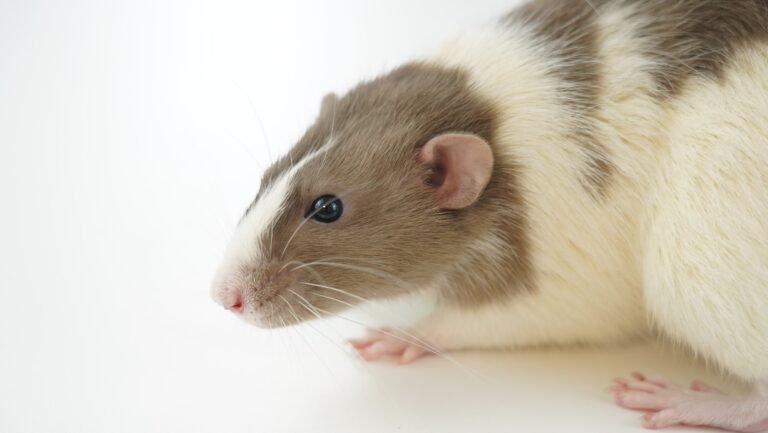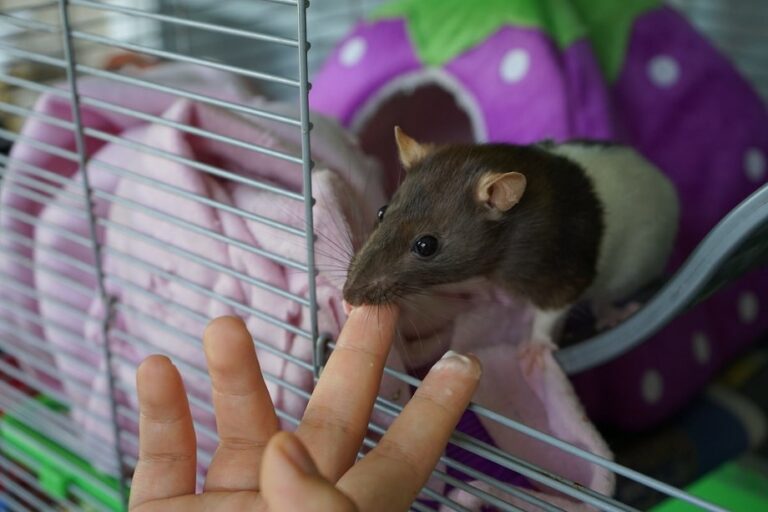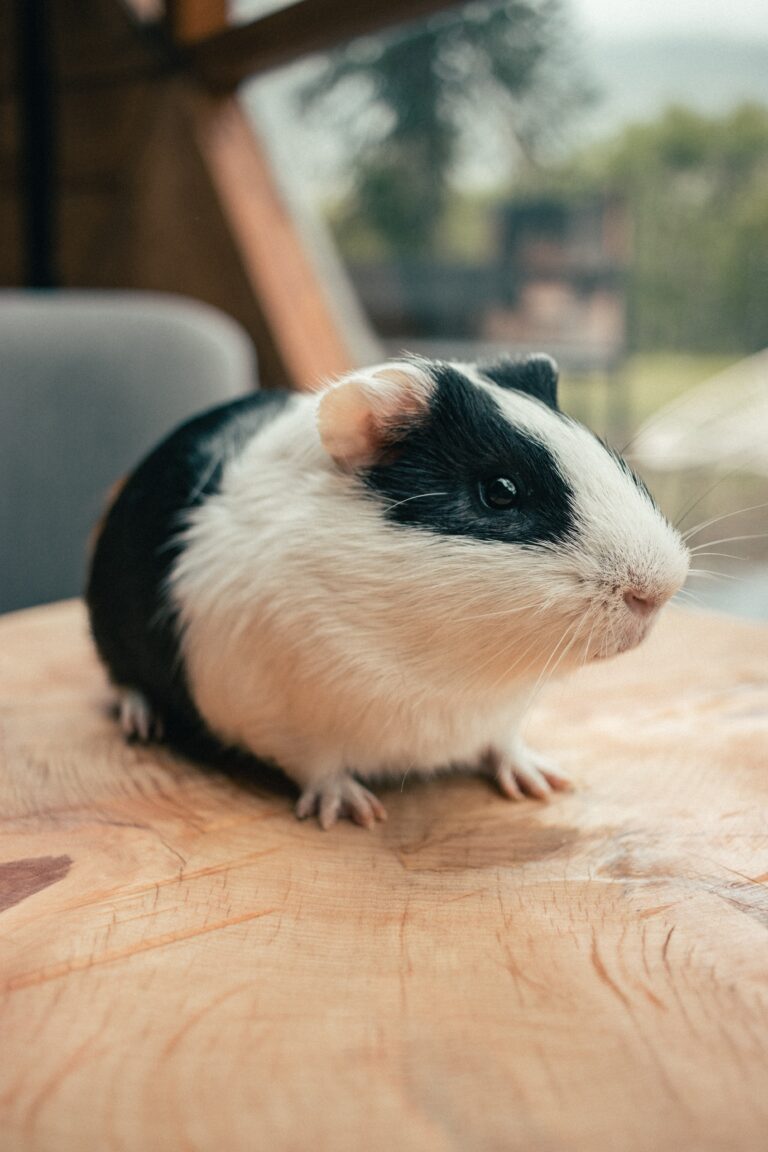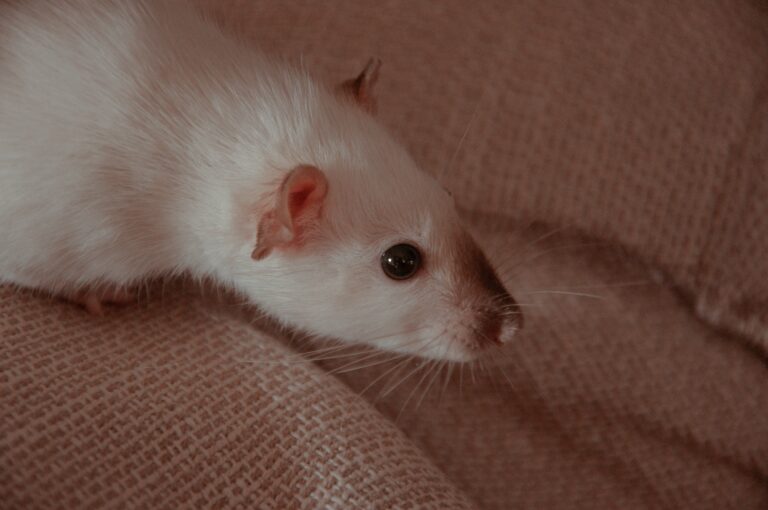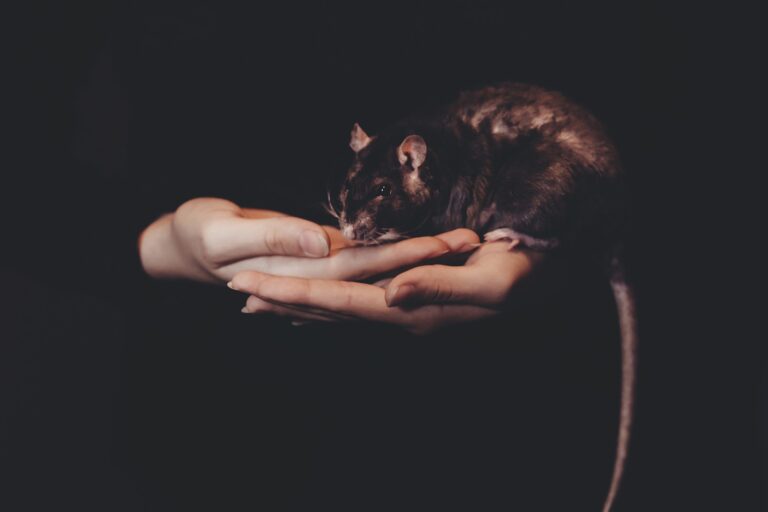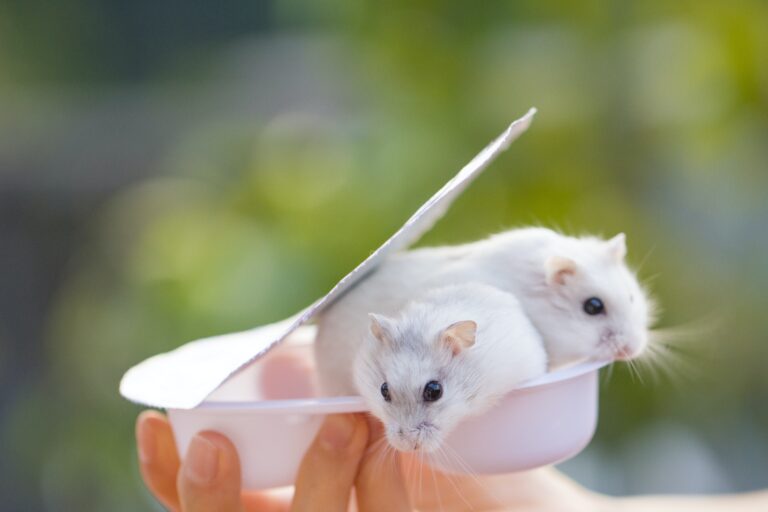How Old Is My Pet Rat Anyway? (Rat Years to Human Years Conversion Guide)
Pet rats age very quickly. I call them; two year gifts from God. They are precious little bundles of fun and loving fur, but they only stay in our lives for a short period of time, that’s why it’s important to spend as much time with them as you can so you can enjoy the time you have together.

Debbie Ducommun the “Rat Lady” writes in her Rat Health Care book this about rats ages:
5 weeks = 10 human years
6 months = 16 human years
9 months = 25 human years
12 months (1 year) = 35 human years
18 months (1.5 years) = 50 human years
24 months (2 years) = 65 human years
2.5 years = 75 human years
3 years = 85 human years
4 years = 100 human years
5 years = 110 human years
6 years = 120 human years
7 years = 130 human years
I’ve been breeding pet rats for over twelve years now and during this time I’ve raised over 1500 of my little fur friends. It’s been my experience that this time frame for the aging process is much different than what Debbie is suggesting. Below is my approximation for their lifespan:
1 week = 1 human year
2 weeks = 2 human years
3 weeks = 5 human years
4 weeks (1 month) = 8 human years
5 weeks = 12 human years (they are old enough to produce babies at this age, therefore males should be removed from their mothers at four weeks of age.)
6 weeks = 14 human years
7 weeks = 16 human years
8 weeks (2 months) = 18 human years
12 weeks (3 months) = 20 human years
16 weeks (4 months) = 22 human years
20 weeks (5 months) = 24 human years
6 months = 26 human years
7 months = 28 human years
8 months = 30 human years
9 months = 32 human years
10 months = 34 human years
11 months = 36 human years
12 months (1 year) = 38 human years
13 months = 40 human years
14 months = 42 human years
15 months = 44 human years
16 months = 46 human years
17 months = 48 human years
18 months (1.5 years) = 50 human years
24 months (2 years) = 80 human years
30 months (2.5 years) = 85 human years
36 months (3 years) = 90 human years
3.5 years = 95 human years
4 years = 100 human years
As far as I know the longest living pet rat on record lived to be seven years old. But that is the only case reported and that long life span was a miracle of sorts.
I’ve only heard of a hand full of rats living to be four years of age, so it is very rare for them to reach that age also.
It has been my experience that sadly, the average lifespan of a pet rat is only 24 months or two years. By this time they are about 80 years old in human years and have lived a good long life, an average life span.
By the time your pet rat makes it to two and a half years of age it is really around 85 years old in human years and is considered to have lived an outstanding, above average life span.
If you are blessed to have your pet rat live to be 3 years of age you are in the minority and truly lucky because they would be around 90 years of age in human years and considered having extreme longevity.
As a breeder I’m striving to expand the life spans of my pet rats. Many of my pets are now living between 2.5 and 3 years of age. When I first started breeding they were living about 18 to 24 months. I’ve been able to increase their life spans by making correct genetics choices, providing them with proper medical assistance when needed and making sure they are fed a healthy diet, (very similar to the type of diet considered healthy for us humans) and that they receive opportunities for daily exercise and have new and interesting things to do and explore, to keep their minds active and keep their love for life strong.
They’ve done research recently where they’ve found rats feed a daily diet that includes blueberries are living six months longer than groups not regularly fed blueberries. So if you want to help increase your pets life span you might include this “miracle” berry in their diet.
The more love and attention you give your pets the longer they seem to want to stay around, as they are thoroughly enjoying their time with you and don’t want to leave you anymore than you want to leave them.
Also, they are discovering pet rats fed a varied diet of health people foods, like left overs from our meals were living longer also. It is believed this is a psychological factor, because our pets tasting mechanisms are as developed as our own. When given foods with a “yum” factor to them it’s much like us asking our Mom’s “what’s for dinner tonight Mom?” We get excited when we learn we are getting one of our favorite meals…our pets react in a similar manner to this daily treat of flavors, thus giving them something to look forward to.
